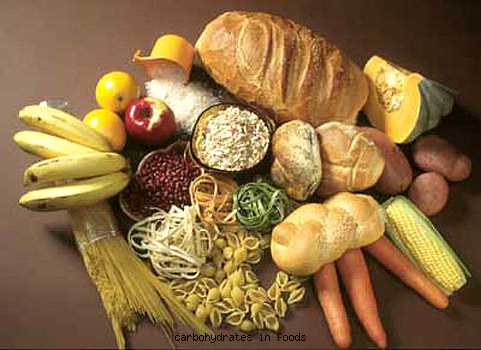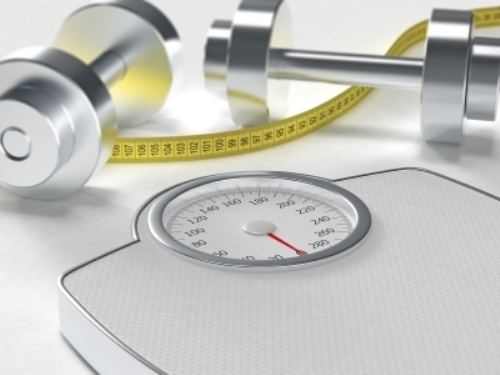
Low-carb diets have come up as a substitute for low-fat diets. It has been observed that the rate of weight loss and fitness gain is higher in this method. However, the higher returns from the method are because of the higher risks that it entails. One of the foremost problems with low-carb strategies is that once the dieting period is over, people put on the same weight at an equally rapid pace. The body, at times, is forced to survive without essential nutrients which can lead to many problems and complications. While strategies like carbohydrate cycling and moderate carbs reduction are useful for this method, there are some strategies that should be avoided.
Going with the flow without a plan
There are many that lead their lives by ‘going with the flow’, as it is called. But, when it comes to dieting, a certain degree of discipline and planning are the must to keep in mind. This is because, when on a new diet, there is a very strong tendency for old habits to return. And when they are resisted, they seem to hit back with greater force. Pause a while and take time to reconsider your eating habits. Till the new diet becomes your new habit, it pays to plan. And planning will include strategies to keep away from places and situations where you are likely to break your diet. Also, keep a stock of what you should eat when. Your diet can get sabotaged if you are hungry and you don’t know what to eat. It will help to write things down or even make a chart. Keep it in a place that you can see regularly, for it will reinforce your determination.
Equating low carbs to no carbs
In the race to lose weight faster and in a manner that enthuses, people have a tendency to adopt a ‘no-carb’ strategy. But if scrutinized carefully, none of the low-carb strategies out there ever advocate a no-carb approach. The human brain needs about 130 grams of carbs each day for its proper functioning. Stooping carbs altogether can cause damage to the brain. There is another associated danger too. When the body gets less than 100 grams of carbohydrates in a day, it begins to burn muscle-tissues for glycogen reserves. It is only after these are exhausted that fats are burnt. Thus, a ‘no-carbs’ strategy leads to wasting of muscles and weakness. Lack of carbohydrates leads to production of ketones in the body which in turn leads to bad breath, constipation, brain-fogginess and lethargy.
Avoiding fruits and vegetables
Vegetables and fruits are rich sources of vital nutrients like minerals, vitamins and metals. Avoiding them will deprive the body of these nutrients, and leads to various other conditions. There are many fruits and vegetables that are low in carbs. They, in fact, should form the base of anyone’s low-carbs pyramid. Roughage and fibers present in fruits and vegetables are mostly carbs but they are not easily digested by the body. At the same time, the fibers are necessary for good bowel movement and a healthy gastro-intestinal tract. Thus, avoiding all fruits and vegetables is a bad idea. Eat them in plenty. Some vegetables like cucumbers have an interesting effect. The energy needed to digest them is greater than the energy got from them. So, eating them really helps.
Over eating the low carb foods
There are certain foods which are classified as ‘low carbs’. Proponents of low-carb diets will say that these foods can be eaten in large quantities. However, it must be kept in mind that there is nothing like a ‘zero-calorie’ food. As mentioned before, there are certain foods like cucumbers that do not add carbs in any way. They are more of an exception than the rule. All the remaining foods definitely contain some carbs and if eaten indiscriminately, will hamper the dieting strategy. Thus, if you are planning to stuff yourself with low-carb foods and satisfy your craving to eat, it is a big mistake. The idea of including these foods is to ensure the same amount of food with lesser calories added. Do not change your eating quantity. Eat when hungry. And when you are comfortable, stop eating.
Not eating fats at all
There are two lines of the thought of dieting. One recommends a low-carb diet while the other recommends a low-fat diet. There can be a temptation to ‘indulge’ in both lines of thought with the idea of losing weight fast. And when it is done, it also seems manageable in the beginning enthusing people to go ahead. However, lack of carbs and fats in the diet tends to make one very hungry. There can be no greater disaster to a dieting program than an dissatisfied hunger. In time, fat loss begins to slow down and hunger overpowers the individual, thus sabotaging the diet. While on a low-carb diet, include some fats to fill the stomach. Remember that not all fats are bad and harmful.
Carb-creeping
Success in the low carb diet could lead to a feeling of hubris. This loss of contact with reality due to over-estimation of ones abilities can often be disastrous. It starts with the thought that when one is feeling light and great, why not enjoy a piece of toast? You no longer feel hungry between meals and are energetic and so, you start adding a bit more sugar in your beverage. The thing about the low-carb diet is that it is a habit-based strategy. Anything done to break the habit may induce a reverse habit. This means, small compromises can kickstart your former cravings, and before you notice, you gain weight.
Settling for low-carb packaged foods and giving up exercise
Exercising is not easy in the beginning. It requires disciplining and perseverance in efforts. Therefore, there is a strong tendency to leave exercise out of the equation. Instead, consuming meal-replacement bars, low-energy snacks and other packaged low-carb treats instead of normal snacks is taken as justification. This is a two pronged disaster. For one, the so called ‘low-carb’ treats usually contain ingredients like maltitol, which is often as bad (if not worse) as sugar. Secondly, exercise lowers the body’s insulin resistance and thus helps in losing a few pounds. Exercise is also necessary to keep the body in a healthy condition. So, make it a point to include exercise in your strategy and keep out ‘low-carb’ packaged foods as far as possible.
Getting into a rut
You must not get into a rut while dieting. Eating the same things day after day just because they are low on carbs and you enjoyed them on day one will get you bored, and even sick of them very soon. A varied diet not only helps in overcoming boredom and ennui but is also better from a nutrition point of view. Know that almost every cuisine in the world arrives with a low-carbs variant which could be attempted. Most of the dishes can also be ‘de-carbed’ before consumption. So getting into a rut while on a diet is a strict no-no.
Aiming too high
An unrealistically high aim is a recipe for disaster. When attempting a low-carb diet, know that there are many variants and strategies for the same. The one that suits someone and works well, need not work well for the other. Going in with high hopes and expectations will lead to disappointment. Slow and steady definitely wins the race when it comes to dieting. Be slow but be steady in your expectations. When something is not working, know that a simple adjustment and a few changes in the diet can get you back on track.


